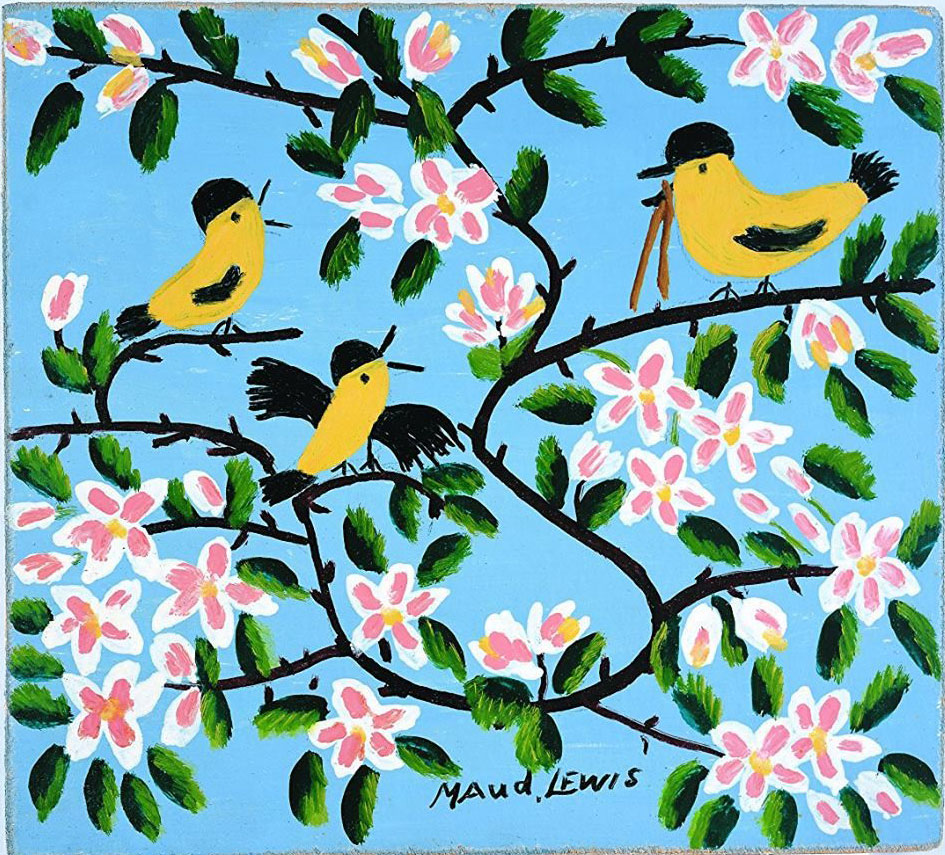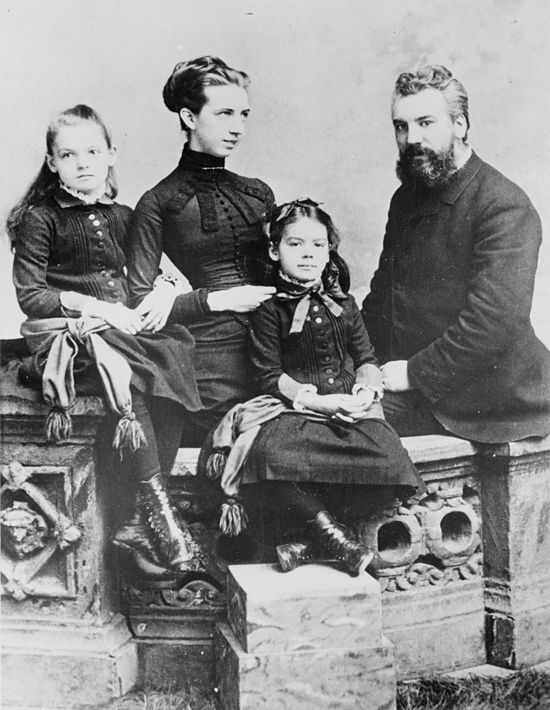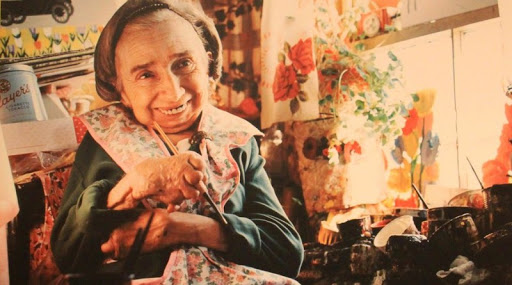
Dear Reader
In researching my book, The Power of Disability, I discovered that people with disabilities have been major players throughout history. Much more than I realized. If you were to take away their contributions, you wouldn’t recognize the world. The world would be a much different place and in much rougher shape. Sadly the history books have missed most of these achievements or have given credit to someone else.
This issue highlights Alexander Graham Bell, actor Micah Fowler, poet Amanda Gorman, and artist Maud Lewis. Please keep sending your comments and suggestions via this form. And if you like what you’re reading do spread the word.
Thanks – Al
This week in history ...

On March 3 inventor and educator Alexander Graham Bell was born in Edinburgh Scotland (1847). He is pictured above with his wife and daughters. Bell began his career as a teacher of deaf people. He invented the electrical speech machine, the forerunner of the telephone, to enable him to communicate with his mother and his wife Mabel both of whom were deaf.
Bell believed that deafness was a curse. He did not believe in sign language and used his influence to discourage its use and to prevent deaf teachers from teaching deaf students because they would bring sign language into the classroom. Instead he promoted oral speech and lip reading. Bell also believed that deaf people weakened society. He wrote a paper Upon the Formation of a Deaf Variety of the Human Race in 1883 which among many things recommended that deaf people not be allowed to socialize with each other or to marry other deaf people. He was a eugenicist who wanted to prevent the creation of a deaf race by preventing the birth of deaf children. “Those who believe as I do, that the production of a defective race of human beings would be a great calamity to the world, will examine carefully the causes that lead to the intermarriage of the deaf with the object of applying a remedy ,” he wrote.
Bell’s insistence that being deaf is a deficiency to be fixed and a culture to be eradicated still has negative consequences even though sign language is recognized as a perfectly valid method of communication and a fundamental language of the brain. Today Deafness is recognized as a culture with its own symbols, language, ways of being, and pride in identity.
Note: Those who identify with Deaf culture, use a capital ‘D.’ Otherwise, the lowercase ‘d’ is used to refer to the audiological condition of not hearing.

On March 5, 1998 Micah Fowler actor and star of the tv series Speechless was born. Fowler plays J.J. a sixteen year old boy who has cerebral palsy. J.J. is an authentic character not meant to serve as a source of inspiration for others. Instead he is complicated, funny, mischievous and occasionally a jerk. Fowler has cerebral palsy making him a rare example of a disabled person playing a disabled character. According to the Ruderman Foundation only 1-2% of tv characters are represented as disabled even though 20% of the world is disabled. And 95% of those roles go to non disabled actors.
Fowler says it bothers him when a non disabled person is, “portraying a character with a disability; it’s disheartening, inaccurate and at times feels borderline mocking. A person living with that disability can draw from real life experiences and bring depth, perspective, and an essence to the role that a person not having lived with a disability could not.”

On March 7, 1998 Amanda Gorman, the youngest inaugural poet in US history, was born. Gorman published her poetry book The One for Whom Food Is Not Enough in 2015. One of the most memorable parts of the inauguration of President Joe Biden was Gorman reading her poem, The Hill We Climb. Gorman says of her disability, “I don’t look at my disability as a weakness. It’s made me the performer that I am and the storyteller that I strive to be. When you have to teach yourself how to say sounds, when you have to be highly concerned about pronunciation, it gives you a certain awareness.”

Also on March 7th Nova Scotian artist and icon of the folk art movement Maud Lewis was born (1903). One of her paintings is presented above. Lewis lived in poverty all her life and never travelled more that 100 kilometres from her home in Digby, Nova Scotia. Lewis never took art lessons or saw another work of art. She was an intuitive artist, confidently and consistently painting the world as she saw it. “Just guessing my work up,” was how she described it. Her playful scenes of birds, butterflies, daisies, wide-eyed oxen, cats and horse-drawn sleigh rides sparkle with joy. Her paintings, in the words of one art gallery owner, contained, “No shadows at all. Everything is happy, gay, quick and lively.”
The debilitating effects of childhood rheumatoid arthritis increased as Lewis got older. It became harder and harder for her to walk and particularly to grasp her paintbrush. She was in constant and worsening pain. Lance Woolaver the author of a book and a play about Lewis discovered a mound of aspirin bottles buried in the backyard of her house after she died.
Lewis never sold her paintings for more than a few dollars each. Unable to afford canvasses she painted on anything around her, the shelves, walls, stairs and wood stove in her home and discarded pieces of wood in her yard. “As long as there’s a brush in front of me, I’m alright,” she said.
Lewis died in 1970 and was buried in a “pauper’s grave.” Maudie a biographical movie about her life was released in 2016 starring Sally Hawkins as Maud and Ethan Hawke as her husband. It has revived interest in her work. Some of her paintings now sell as high as $125,000.00 Her tiny one room cabin has been restored and fits entirely inside a room at the Art Gallery of Nova Scotia.
Did you know?
The 2021 Presidential inauguration was the most accessible ever. Joe Biden and Amanda Gorman have a speech disability. The pledge of allegiance by Amanda Hall was done in American Sign Language. The national anthem was sung by a disabled woman, Lady Gaga. In addition Justice Sotomayor has Type-1 Diabetes and there was a Deaf culture “Signs of Change” inauguration ball.
